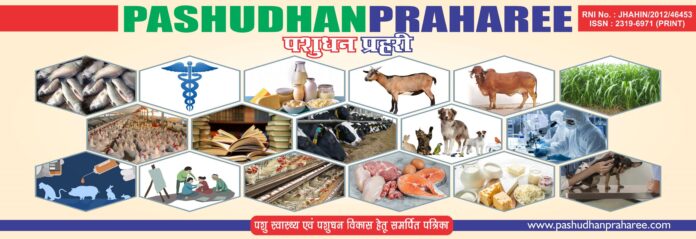Role of Artificial Intelligence in the Dairy Industry
Dr. Sachin Uttamrao Raut, Department of Veterinary Surgery & Radiology, College of Veterinary & Animal Sciences, Parbhani-431401
The dairy business is an important component of the global food supply chain, supplying nutrition to millions of people throughout the world. With the integration of artificial intelligence (AI) technology in recent years, the sector has seen a significant revolution. AI has transformed several elements of dairy farming, including milk production and general operations. This essay examines the various applications of artificial intelligence (AI) in the dairy business, emphasizing its substantial contributions to efficiency, production, and sustainability.
What is artificial intelligence (AI)?
Artificial intelligence is the simulation of human intelligence processes by machines, especially computer systems. Specific applications of AI include expert systems, natural language processing, speech recognition and machine vision.
Automated Milking Systems:
The development of automated milking systems is a significant use of AI in the dairy sector. Artificial intelligence systems are used to identify cows, monitor their health, and optimize the milking process. Sensors on the cows capture information about milk yield, udder health, and behaviour patterns. These data points are analyzed in real time, ensuring timely and effective milking with the least amount of human intervention. Automated milking systems boost productivity while also improving animal comfort by delivering individualized care.
Herd Management:
Artificial intelligence (AI) is essential for monitoring and managing dairy herds. AI algorithms can monitor individual cow health, fertility, feeding patterns, and milk output by collecting and analyzing massive statistics. Farmers can take proactive efforts to avert possible concerns by recognizing anomalies or early indicators of disease, resulting in healthier cows and increased milk output. AI also aids in optimizing feed rationing, breeding decisions, and overall herd performance, allowing farmers to make data-driven farm management decisions.
Predictive Analytics:
The application of AI-powered predictive analytics in the dairy business has proven to be beneficial. AI systems can estimate future milk yields, find patterns, and establish factors that influence production by analyzing large datasets containing milk production records, meteorological conditions, genetic information, and more. These insights enable farmers to make more informed decisions, better allocate resources, and improve overall operational efficiency. Dairy farmers can use predictive analytics to react to changing conditions, mitigate risks, and increase productivity.
Quality control:
Quality control is critical in the dairy sector to ensure the production of high-quality milk. By analyzing milk samples, AI-driven solutions aid in quality control. Machine learning algorithms are capable of analyzing milk composition, detecting pollutants, and identifying probable anomalies that may influence milk quality. Farmers can prevent inferior products from accessing the market by quickly recognizing and correcting any problems. AI-based quality control solutions increase consumer trust, protecting dairy products’ reputation.
Precision Feeding:
Through precision feeding, AI technology has optimized the feeding process in dairy farming. AI algorithms can build personalized feeding regimens for individual cows by analyzing data on cow behaviour, milk production, and nutritional requirements. This personalized technique guarantees that each cow is fed the best diet possible, resulting in increased milk production efficiency and general animal health. Precision feeding also decreases waste and environmental effect by avoiding overfeeding and wasting resources.
Reproductive Management:
AI aids in reproductive management, which is an important element of dairy farming. AI systems assist farmers in determining the best timing for artificial insemination by analyzing data on cow estrus behaviour, fertility history, and genetic information. This method improves breeding success rates and shortens the time between calving intervals, resulting in a more efficient reproductive cycle. AI-powered reproduction management helps dairy companies to be more sustainable and profitable.
Robotic Herd Monitoring:
AI-driven robotic systems outfitted with sensors and cameras have revolutionized herd monitoring. These technologies can monitor cows’ health, behaviour, and well-being in real time. The acquired data is analyzed by AI algorithms, allowing for the early detection of indicators of discomfort, illness, or anomalous behaviour. Interventions can be done to ensure animal welfare and prevent any health risks by swiftly informing farmers. Robotic herd monitoring systems enable continuous surveillance, allowing farmers to manage their herds more effectively.
Conclusion:
The incorporation of artificial intelligence (AI) technologies into the dairy industry has resulted in transformative changes, revolutionizing farming practices and increasing productivity. AI applications in automated milking systems, herd management, predictive analytics, quality control, precision feeding, reproduction management, and robotic herd monitoring have ushered in a new era of efficiency and sustainability in the dairy industry. As AI advances, it has the potential to further revolutionize the dairy business. Dairy farmers can make data-driven decisions, cut costs, enhance milk quality, and maintain the well-being of their herds by leveraging the power of AI, ultimately satisfying the growing demand for high-quality dairy products in a sustainable manner.


